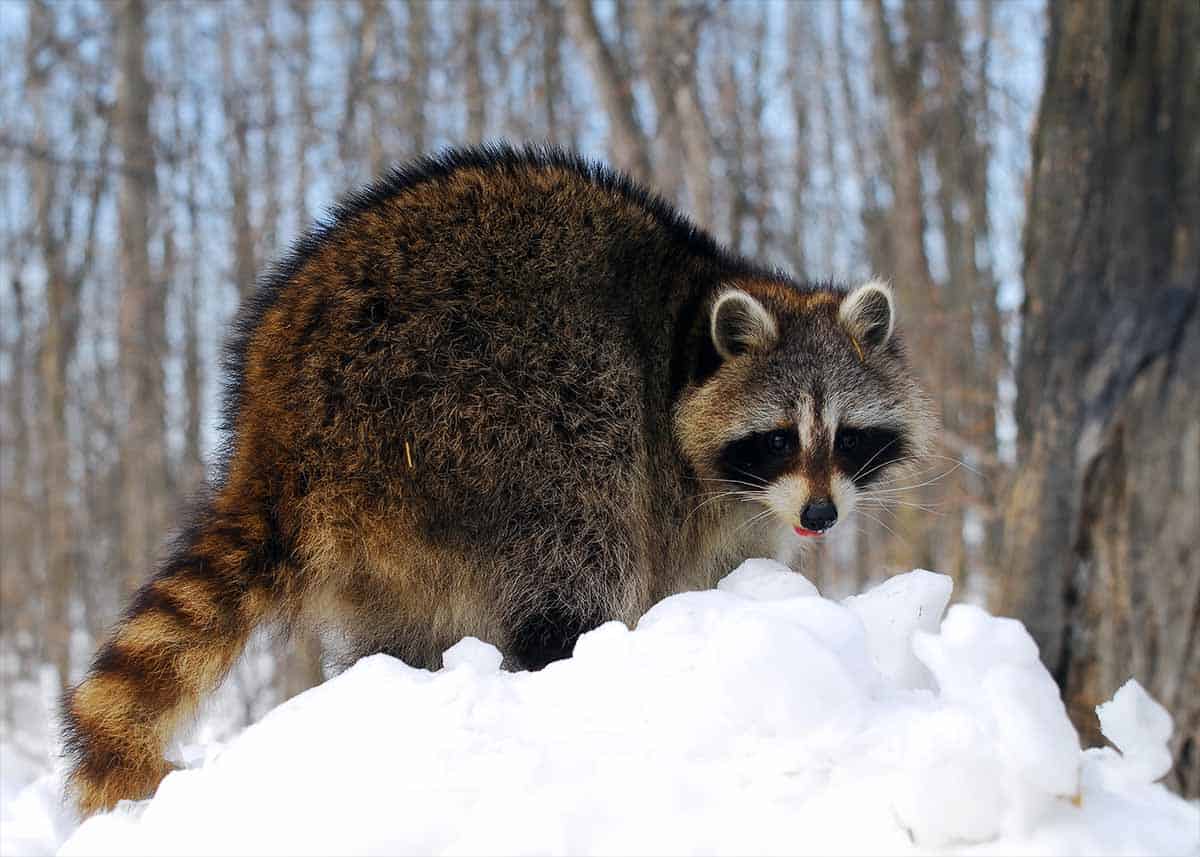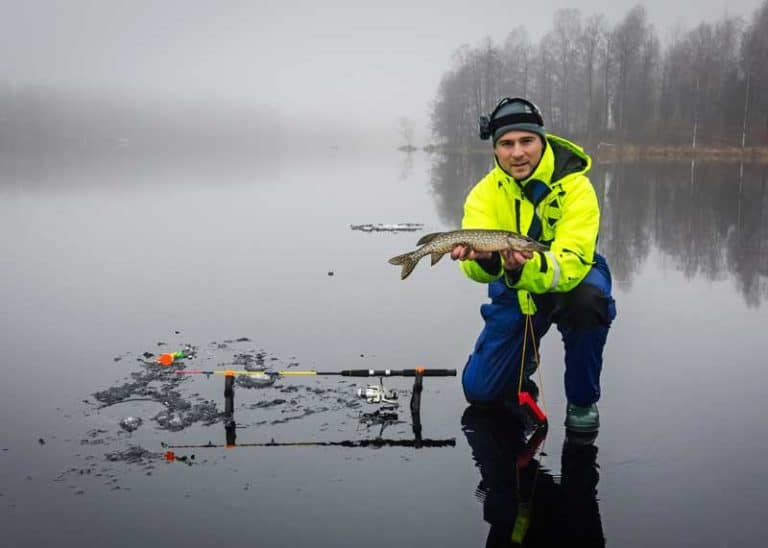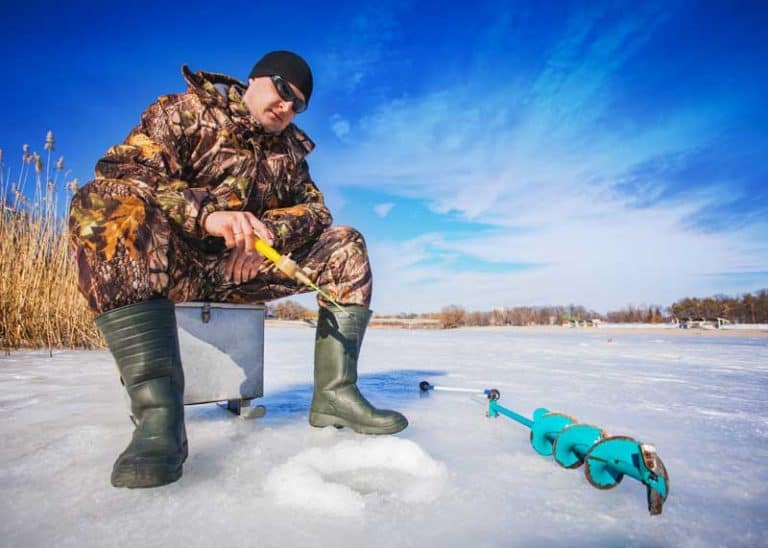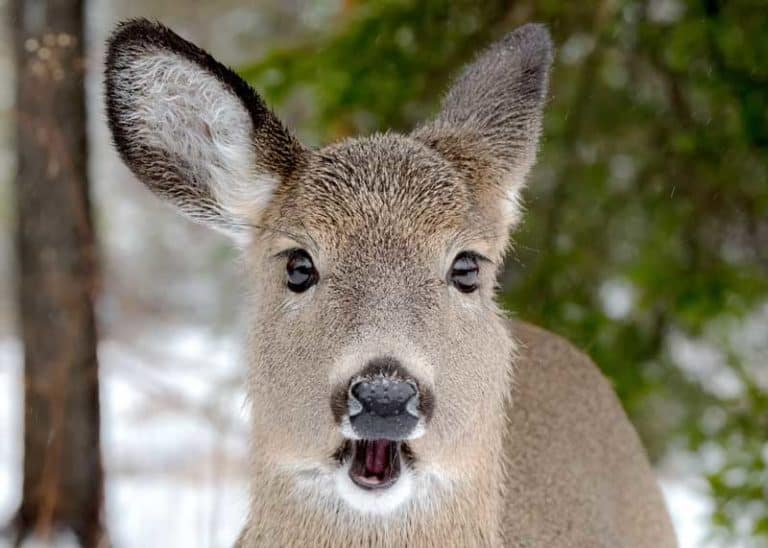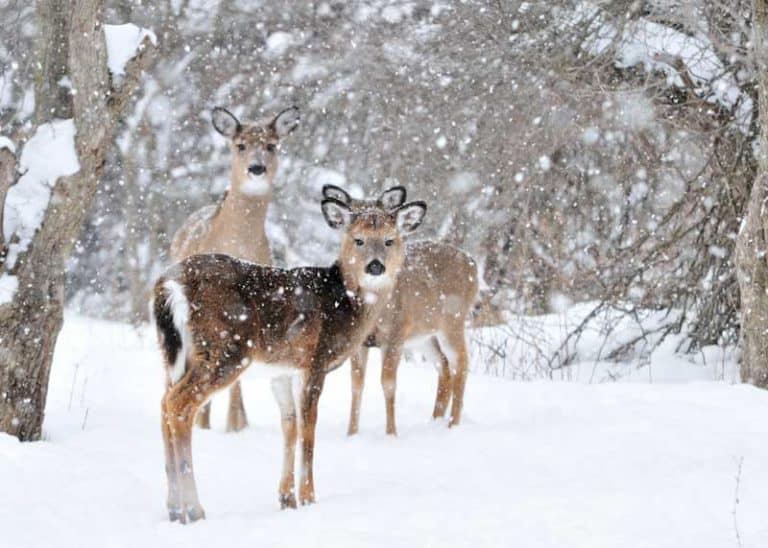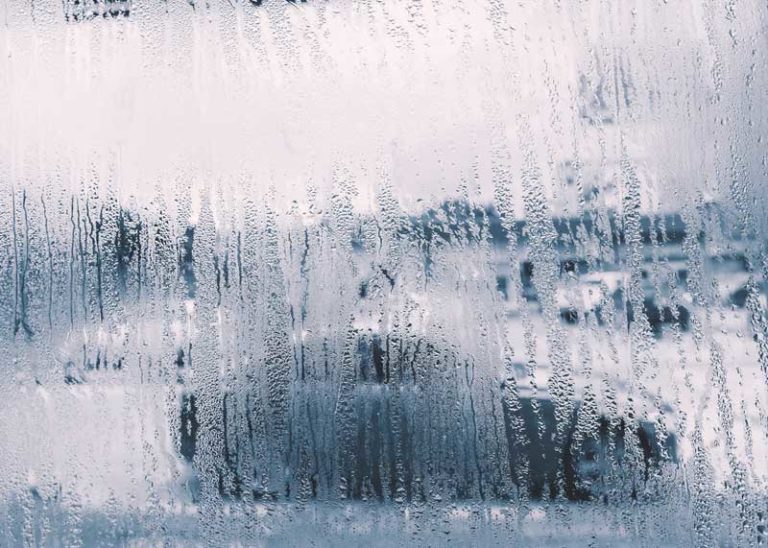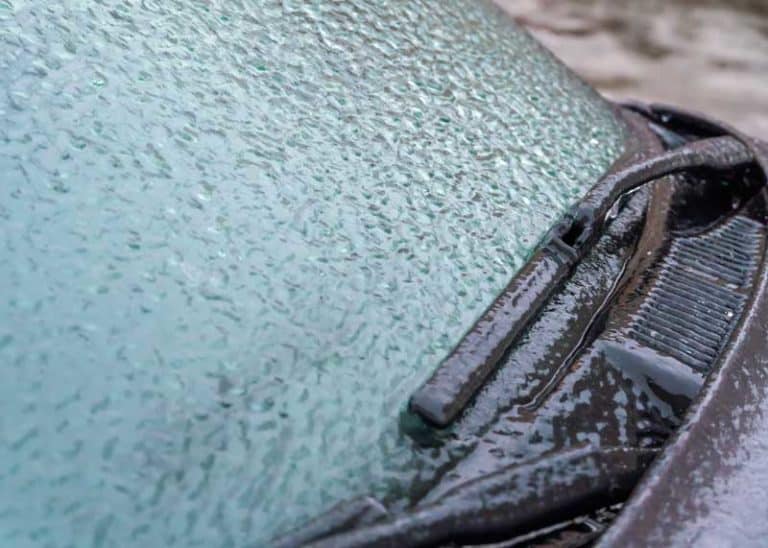Do Racoons Hibernate in the Winter? 3 Ways They Survive the Cold
Many North Americans will be familiar with raccoons. They’re the ring-eyed bandits that overturn bins, tussle with cats, and create a spectacular mess. But what cold weather? Do raccoons hibernate in the winter?
Raccoons don’t hibernate in the winter. This is different than some other mammals in cold climates. Instead, they have three special features to survive freezing temperatures: willingness to eat anything, winter fat, and winter coats.
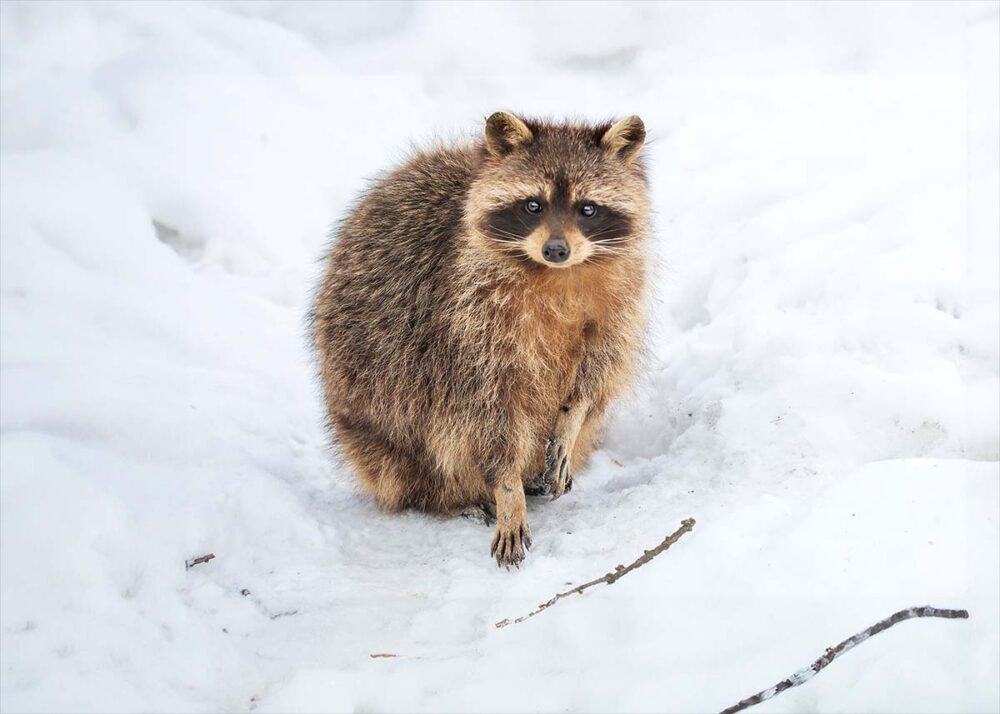
This guide is part of our series on winter camping.
Some homeowners have raccoons living under their decks. Or have raccoons getting into their garbage. Have you noticed that you don’t see raccoons much in the winter?
Do Racoons Hibernate in the Winter?
The short answer is no. Raccoons don’t hibernate. Animals that truly hibernate, like bears and chipmunks, become inactive and sleep through the winter.
Raccoons do not hibernate, but like many other animals existing in cold climates, they will enter periods of deep sleep, interspersed with periods of wakefulness that include venturing outside the den to forage for food.
Shubenacadie Wildlife Park
Raccoons undergo something called torpor. In torpor, raccoons sleep through extremely cold weather. In this state, their bodies carefully regulate things like insulin levels. But they don’t stay in torpor through the winter.
They wake up on warmer days to forage for food. That helps raccoons sustain fat and blood sugar levels. They never venture far from their den, but they don’t spend the entire winter in it, either.
Raccoons are similar to squirrels and stay active during cold weather.
3 Ways Racoons Survive Winter Weather
But if raccoons don’t hibernate, how do they survive winter?
1. Eating What’s Available
Raccoons are infamously unfussy eaters.
While squirrels and chipmunks fussily hoard nuts for the winter, raccoons have no such scruples. They’re happy to eat chicken skin, dog food, and insects.
That variety ensures raccoons get ample access to proteins. It also lets them put on enough weight to survive the cold.
Depending on where you live, more ambitious raccoons may also go after small livestock or injured waterfowl.
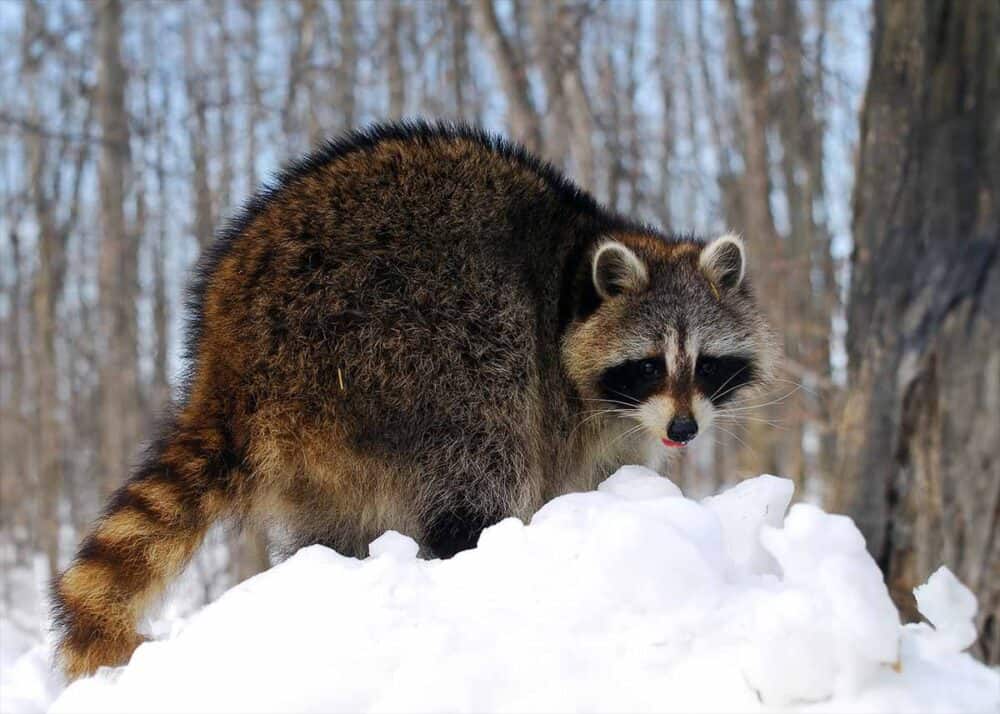
2. Fat Stores
The obvious advantage of all that opportunistic eating is that it enables raccoons to develop fat stores.
Once in torpor, raccoons lose between 14-50% of their body weight. This varies depending on the climate, and especially on how inclement the weather is.
While cold-weather animals like polar bears store fat in their fur and around their bodies, raccoons also store some of their fat in their tails. Once winter arrives, they hunker down in their dens and curl their tails around them to conserve heat.
The raccoon builds up fat over its entire body, even around the tail bone. It may be 2.5 cm thick on the back. In fact, by late fall about half of the animal’s total body weight may be fat.
hww.ca
3. Winterized Fur
Another way raccoons survive winter is by growing thicker fur. It’s more water-resistant than their summer coat, and it helps retain heat.
How thick this winter fur grows varies depending on the climate. Raccoons in New England or Canada naturally develop thicker coats than their contemporaries in milder parts of North America.
Where Do Racoons Live?
Most raccoons live in tree hollows and forested habitats.
But raccoons are chancers by nature. If they can, they may take over another animal’s den. That saves them the work of building one themselves.
And many raccoons live in urban areas of towns and cities. Popular urban raccoon dens include:
- Crawl spaces
- Under decks
- Gaps in the roofing or eaves
- Under house foundations
The most effective way to ensure this doesn’t happen is to fill in any potential points of mammal ingress you spot around your property during the autumn.
Should I Get Rid of Racoons?
If you have raccoons living in your home, you don’t want them to get comfortable. A surprising number of people find raccoons cute, but they are one of the primary rabies carriers in North America.
If you detect signs of a raccoon infestation, it’s time to give your local pest control a call.
Signs of raccoons in residence include:
- Nocturnal squeaking, scratching, or rustling
- Shredded insulation
- Chewed or gnawed rafters and beams
- Urine or feces around the property
How to Prevent Racoons Denning in My House?
Raccoons are noisy and smelly, and the charm of those bandit-like faces gets old fast once they become your unofficial tenants.
So, what can you do to keep raccoons out of your house?
- Stop Up Any Gaps: While it’s still warm out, have a look around your house. Stop up any gaps in the roofing and siding as you see them. The attic is a favorite denning spot for raccoons, but you shouldn’t overlook your foundations or the space under a deck.
- Clear Out Dead Vegetation: Another thing you can do to deter raccoons is thoroughly clean out your garden. Dead vegetation and plants that go to seed are an attraction to the undiscerning raccoon. Our apple trees attract raccoons in early winter.
- Bring Pet Food Indoors: If you’re an animal household, never leave your pet’s dishes outside overnight. Removing that food source lowers the chances of raccoons investigating your home for food or shelter.
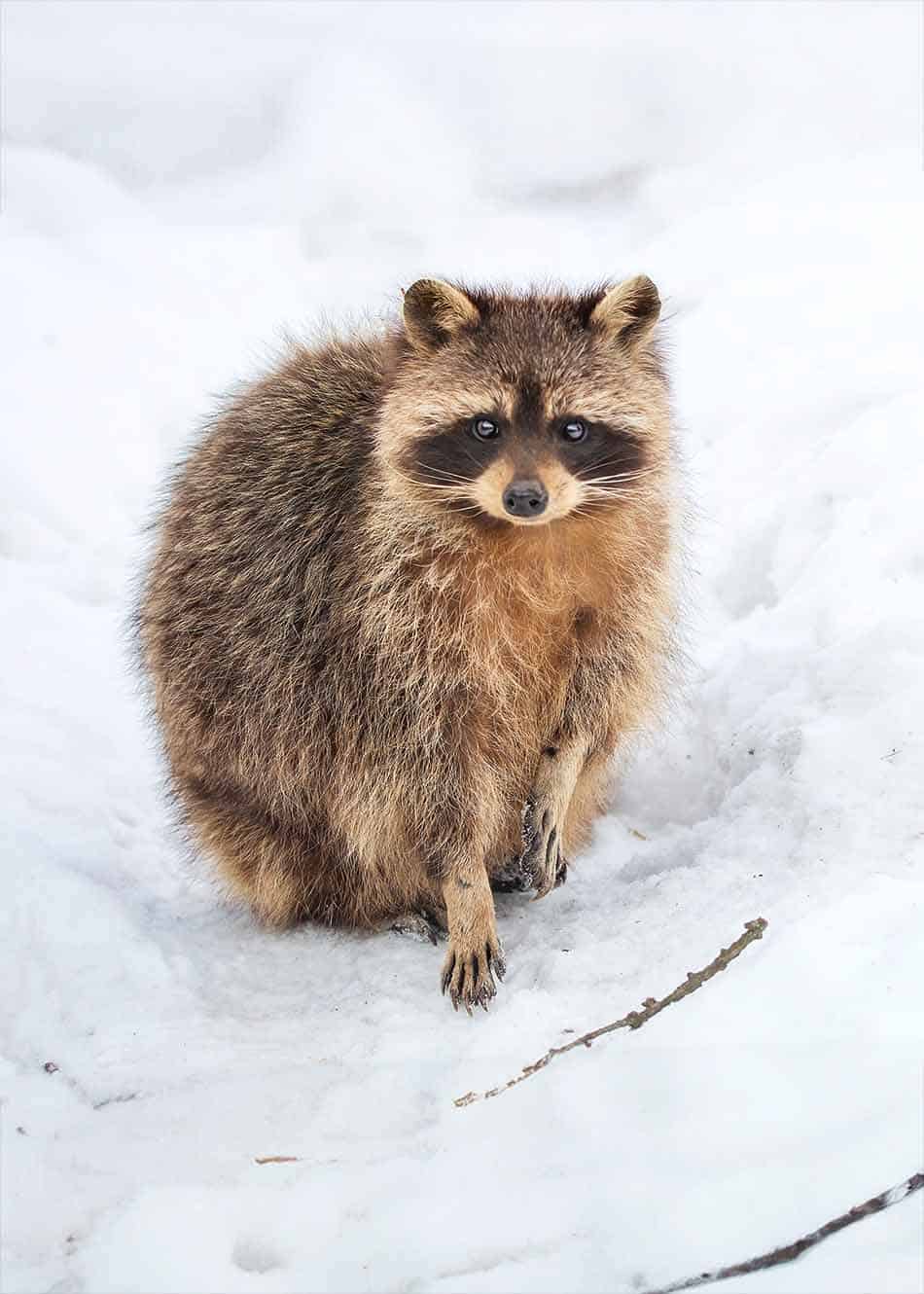
Have You Seen Racoons in the Winter?
Raccoons have several features that ensure they can survive the winter.
It’s important to prevent raccoons from trying to over-winter with you. Take time to repair any gaps in your roofing and sheds, and ensure you don’t have anything around the house that could be a food source.
Do you have raccoons around your property? How do you deal with them?

